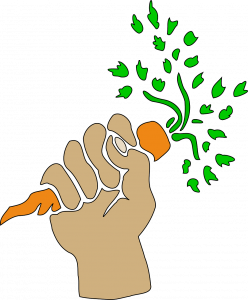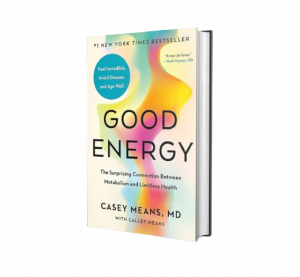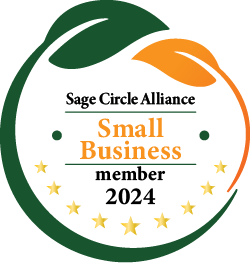Juneteenth, celebrated on June 19th, is a significant day in American history that marks the end of slavery in the United States. This day commemorates the resilience, culture, and achievements of African American people. In a recent discussion, Veganpreneur REVOLUTION™ podcast co-hosts V. Lynn Hawkins and Kathleen Gage explored the intersection of Juneteenth, veganism, and broader themes of liberation and justice.
The Historical Significance of Juneteenth
Juneteenth celebrates the announcement of the abolition of slavery in Galveston, Texas, on June 19, 1865, two and a half years after the Emancipation Proclamation was issued. This day signifies a pivotal point in the struggle for freedom and equality for African Americans, highlighting the importance of acknowledging and addressing historical injustices.
after the Emancipation Proclamation was issued. This day signifies a pivotal point in the struggle for freedom and equality for African Americans, highlighting the importance of acknowledging and addressing historical injustices.
Drawing Parallels: Human and Animal Liberation
Hawkins and Gage draw parallels between the historical enslavement of African Americans and the modern-day exploitation of animals. They delve into the ethical, health, and economic considerations surrounding animal rights, emphasizing that the fight against all forms of slavery, whether human or animal, is interconnected.
Ethical Considerations
The moral implications of exploiting sentient beings for economic gain are significant. Just as the enslavement of African Americans was driven by economic interests, the industrial farming of animals is fueled by profit. The ethical call to action is clear: recognize and combat all forms of exploitation and injustice.
Health Implications
 Historical accounts reveal how enslaved people were forced to eat unhealthy scraps, drawing a parallel to modern dietary habits promoted by the meat and dairy industries. Emphasizing plant-based diets, Hawkins and Gage argue for a shift toward healthier, ethical food choices that impact both human and animal welfare.
Historical accounts reveal how enslaved people were forced to eat unhealthy scraps, drawing a parallel to modern dietary habits promoted by the meat and dairy industries. Emphasizing plant-based diets, Hawkins and Gage argue for a shift toward healthier, ethical food choices that impact both human and animal welfare.
Economic Factors
Economic considerations are central to both human and animal liberation. The profitability of slavery and industrial farming comes at the expense of welfare. Hawkins and Gage advocate for an economic shift that prioritizes ethical, sustainable practices over exploitative ones.
The Role of Veganism in Promoting Justice
Veganism extends beyond dietary choices. It is a movement advocating for the rights of all sentient beings and promoting environmental sustainability. By adopting a vegan lifestyle, individuals can contribute to a broader movement of liberation and justice.
Community and Education
Education and community involvement are vital in advancing these causes. Hawkins and Gage emphasize the importance of raising awareness about the connections between historical injustices and current practices. Through education, individuals can make informed choices that promote justice and equality.
Advocacy and Action
 Active participation in advocating for change is crucial. Whether it’s through supporting ethical businesses, participating in protests, or having conversations about these issues, every action contributes to a larger movement toward a just and equitable society.
Active participation in advocating for change is crucial. Whether it’s through supporting ethical businesses, participating in protests, or having conversations about these issues, every action contributes to a larger movement toward a just and equitable society.
The Impact of Food Policies on Health and Communities
Certain areas in the United States suffer significantly from food deserts—regions where residents lack access to healthy food options. This issue is compounded by restrictive contracts and leases that prevent new grocery stores from opening in these locations for up to 20 years after a store closes, disproportionately affecting underserved communities and perpetuating health disparities.
Government policies heavily subsidize cow’s milk, leading to its widespread presence in schools. Despite the adverse effects it has on many children, including those with allergies or lactose intolerance, legislation is being considered to mandate cow’s milk in all schools. These policies contribute to various health issues among children, such as cancer, acne, and kidney stones.
The Illinois Plant-Based Meal Initiative
In August 2023, Illinois passed a law requiring schools to offer plant-based meal options to students who opt for them. However, awareness of this initiative remains low.
Sponsored by State Senator Dave Koehler of Peoria, efforts are underway to promote this program and encourage other states and school districts to adopt similar measures.
“Whether a student’s dietary needs are rooted in religious, health-related or other, personal reasons, offering a plant-based meal option would satisfy a variety of requirements,” Koehler said in a statement. “Providing a secondary healthy lunch option in our schools is a win all-around.”
The success of this initiative in Illinois demonstrates the feasibility and benefits of offering plant-based meals, including significant cost savings for school districts.
Misinformation and Resistance to Change
Efforts to introduce plant-based options and reduce factory farming face opposition, often fueled by misinformation and automated online bots. For example, in Sonoma County, a proposal to eliminate factory farms met with resistance likely driven by vested interests. Recognizing and countering such misinformation is crucial in advancing more humane and health-conscious food policies.
Health Impacts of Dairy and Meat Consumption
Dairy and meat consumption have far-reaching health consequences. Regular consumption of these products is linked to chronic illnesses, including asthma, allergies, cancer, type 2 diabetes, and obesity. Despite this, the dairy and meat industries continue to thrive, partly due to government subsidies and influential lobbying efforts.
Educational Efforts and Lifestyle Changes
Education is a powerful tool in shifting public perception and behavior regarding food choices. Initiatives like podcasts, live sessions, and collaborations with organizations like Sage Circle Alliance (https://sagecirclealliance.org) aim to inform people about the benefits of plant-based diets. These efforts help individuals understand the connection between their dietary choices and overall health, potentially leading to significant lifestyle changes.
The Role of Compassion in Dietary Choices
 Transitioning to a plant-based diet often requires self-compassion and understanding. Many people struggle with food addictions, which can be as powerful as addictions to drugs or alcohol. Recognizing the complex factors that contribute to these addictions, including cultural influences and chemical dependencies, is essential in making sustainable changes.
Transitioning to a plant-based diet often requires self-compassion and understanding. Many people struggle with food addictions, which can be as powerful as addictions to drugs or alcohol. Recognizing the complex factors that contribute to these addictions, including cultural influences and chemical dependencies, is essential in making sustainable changes.
Personal Reflections and Advocacy
Both VLynn and Kathleen share personal experiences and reflections on their journey toward plant-based living. They emphasize the importance of aligning actions with values, particularly in terms of compassion and health. Their advocacy highlights the necessity of being vocal and proactive in promoting plant-based diets, not only for personal health but also for the well-being of the planet and future generations.
Conclusion: Embracing a Healthier Future
The conversation underscores the need for systemic changes in food policies and individual lifestyle choices. By promoting plant-based diets and increasing awareness about the detrimental effects of dairy and meat consumption, society can move toward a healthier, more compassionate future. Education and advocacy play pivotal roles in this transformation, helping to dismantle entrenched systems that prioritize profit over well-being. Through veganism and conscious activism, we can honor the legacy of Juneteenth and work towards a more just and compassionate world.
Recommended resources:
Documentary:
- Good Energy by Dr. Casey Means
- Ultra Processed People
- Salt, Sugar, Fat
Episode Highlights
[00:00] Introduction
[04:00] Shining the spotlight on the power of freedom.
[06:30] The motivation behind any type of slavery.
[13:00] The history of Juneteenth.
[21:00] The industry of animal ag has to change… for so many reasons.
[25:45] How do our actions impact others?
[32:00] Great news in Illinois.
[37:00] Where milk really comes from.
[40:00] Are you enslaved by the foods you consume?
[45:00] We’ve been lied to.
[49:00] Cognitive dissonance: “I love animals, but I still eat them.”
About Kathleen Gage
Kathleen Gage is a multifaceted professional, renowned as the founder of Vegan Visibility and co-founder of Vegan Visibility Productions. With certifications in Neuro-Linguistic Programming (NLP) and Plant-Based Nutrition from eCornell University, she’s a seasoned business consultant, keynote speaker, and marketing strategist.
Kathleen’s impact extends to hosting the Vegan Visibility Virtual Summit, a niche event supporting vegan and plant-based entrepreneurs with top-tier training from industry experts. Since establishing her business in 1994, she’s navigated economic challenges across various sectors, including high-tech, healthcare, and publishing.
Her influential voice resonates through popular podcasts like “Vegan Visibility” and “Plant Based Eating for Health,” where she advocates for a sustainable, compassionate world and provides guidance to thousands globally. Moreover, as an award-winning speaker and past president of Utah’s National Speakers Association chapter, Kathleen excels in crafting effective marketing strategies.
Kathleen is a founding member of SAGE Circle Alliance, an organization dedicated to a plant-based lifestyle, animal compassion, and environmental regeneration. Founded by a group of passionate change-makers and thought leaders, Sage Circle Alliance aims to inspire individuals to make positive lifestyle changes for the benefit of future generations.
Beyond her professional endeavors, Kathleen resides in Central Oregon, where she champions animal rescue and enjoys outdoor activities. Her commitment to creating a more compassionate and sustainable world shines through in both her personal and professional pursuits.
About Vlynn Hawkins
VLynn Hawkins is a formidable figure at the intersection of vegan entrepreneurship, extreme athleticism, and business leadership. As the Co-Founder of Vegan Visibility Productions and the Chief Executive/Engagement Officer at P3Academy, she channels her expertise to elevate health and wellness businesses. With over three decades in commercial real estate lending, VLynn boasts a track record of leading high-performing teams to exceptional success, consistently generating substantial revenue for multi-billion dollar enterprises.
Transitioning from her corporate career, VLynn’s journey towards holistic wellness began after a knee injury redirected her focus. Exploring healing modalities like tapping, NLP, and hypnotherapy, she discovered a passion for holistic health practices. Today, armed with certifications in business development, hypnotherapy, joint venture brokering, and digital marketing, VLynn empowers Healthpreneurs to thrive in their endeavors.
As a Certified Plant-Based Ambassador, VLynn passionately advocates for the transformative power of a Whole Food, Plant-Based Vegan lifestyle. She hosts the insightful “Health Wisdom & Wealth Show,” sharing invaluable insights into holistic living. Additionally, VLynn serves as the CEO of CrowdfundingHacker.org, assisting small businesses and nonprofits in fundraising for impactful projects.
VLynn is a founding member of SAGE Circle Alliance, an organization dedicated to a plant-based lifestyle, animal compassion, and environmental regeneration. Founded by a group of passionate change-makers and thought leaders, Sage Circle Alliance aims to inspire individuals to make positive lifestyle changes for the benefit of future generations.
Based in Atlanta, GA, VLynn enjoys an active lifestyle, often engaging in workouts and leisurely walks with her Cairn Terrier, Hiro. Her multifaceted skill set and unwavering dedication make her an influential advocate for veganism, health entrepreneurship, and impactful business strategies.
SUBSCRIBE TO APPLE PODCAST for regular updates of the Veganpreneur REVOLUTION™ podcast.




